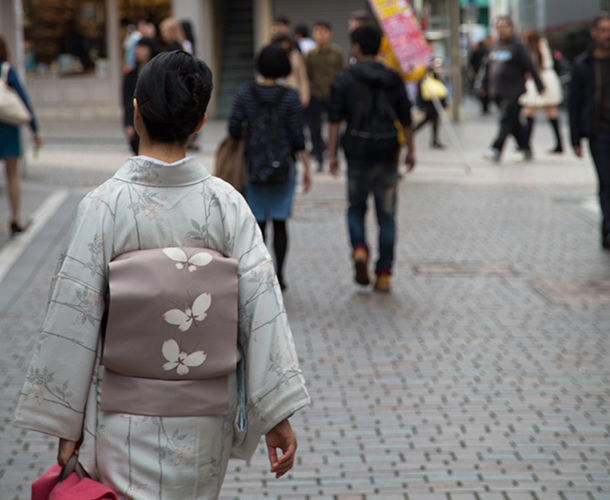
Ministry Updates
Is It Possible to be Japanese and Christian?
August 15, 2017
by admin

When Kira* accepted Christ, she thought she had everything she needed.
Kira and her friend, Azumi*, found Jesus while living in America for their husbands’ jobs. They both joined a large church that was full of energy and strong ministries.
But after five years overseas, Kira returned to Japan, and quiet loneliness engulfed her like a fog.
No one understood her new beliefs, including her own husband. He wanted her to stay home on Sundays because those were his days off from work. When she found a Christian mom’s group, he discouraged her from going because of the money she would have to spend on bus fare.
Additionally, her young sons’ grandparents insisted they participate in Buddhist coming-of-age ceremonies.
Kira became confused and discouraged. Was it even possible to be both Japanese and Christian?
In the years to come, she and Azumi would answer that question in two very different ways.
The Paradox and the Pressure
“It’s important to, if you find [a Japanese national] who’s really open and does confess faith, get them to study the Bible on their own before they come back to Japan,” says TEAM missionary Roberta Peabody. “Or else, you’re just sending somebody back who has no clue what it is to be both Japanese and Christian.”
Since 2011, Roberta has worked with Japanese Christian Fellowship Network (JCFN) to minister to Japanese Christian returnees, people who leave their country for work or school and return with a brand new faith.
While they are away, Japanese nationals are much more likely to embrace Christianity because “they’re on their own without their nonreligious parents or their Buddhist parents,” says Roberta.
However, American Christians don’t always know how to effectively disciple new Japanese Christians.
“It’s a whole education process because some [Americans] who work with Japanese students think they’re fine once they’ve accepted the Lord and that they’ll go home and find a church, but they don’t realize … there could be a whole bunch of family pressure placed on them when they get home,” explains Roberta.
Japanese returnees are expected by their family, friends and culture to still participate in Buddhist and/or Shinto rituals like praying to dead ancestors.
Women are expected to marry as soon as possible instead of waiting for a Christian spouse.
Men are expected to find work in a good company by whatever means possible, regardless of Christian moral standards.
Without training on how to live their new convictions in Japanese society, Christian returnees are often discouraged to the point of abandoning their faith.
“They get to a point within the first two years, if they don’t find some fellowship or a church, where a lot of them will just cast their Christian faith away, thinking, ‘Well, that must have just been part of my overseas experience,’” says Roberta.
That’s where the returnee ministry comes into play.
Keeping It Personal
Roberta says the key to a successful returnee ministry is to focus more on person-to-person interaction than anything else.
“It’s not just getting returnees to our events,” she says. “It’s getting them to meet other people like themselves.”
Some Japanese congregations welcome returnees; others are suspicious of the American Church’s influence because they believe American churches are too liberal.
“There’s a big gap between American church style and Japanese church style, and that’s one of the problems,” says Roberta. “It’s one of the reasons people… don’t feel comfortable here like they did in America.”
While American churches tend to have more casual and progressive services, Japanese churches tend to be more traditional and formal.
Sometimes the fear of landing in an unwelcoming Japanese congregation can paralyze returnees into not going anywhere.
But Roberta and her co-workers walk with returnees, connecting them with other returnees and encouraging them as they search for the right church home.
Aside from a main returnee group in Tokyo, JCFN has several regional small groups scattered throughout Japan that meet on a regular basis and actively seek out other Christian returnees to connect with.
Roberta also uses Facebook to communicate with Christians who are discipling Japanese believers in America.
Azumi’s Story
Unfortunately, Kira didn’t hold onto her faith in Jesus. Despite her friendship with Azumi, the lack of support she received at home made it difficult to stand firm in her new beliefs.
Azumi, on the other hand, was able to deepen her relationship with the Lord thanks to a variety of factors.
Although Azumi’s husband doesn’t believe the Gospel, he supported Azumi in finding a local church family and strengthening her faith through community.
She also met Roberta shortly after returning to Japan, who then connected her with JCFN and the returnee ministry.
The spiritual encouragement Azumi received from the returnee ministry then propelled her to start an English Bible class in her hometown for a group of Japanese ladies who’d also been in the States with her and whose husbands all work in the same company and underwent the same international transfer.
Now, four years later, the class is still meeting and studying the Bible on a regular basis. Half the class members are Christians, and the other half are getting to hear the Word of God, perhaps for the first time.
Because of the returnee ministry’s impact on Azumi, many others now have the opportunity to learn about Christ’s love. And if you have given to TEAM or prayed with us, we want to thank you for making that possible!
*Names changed
Someone like Azumi is waiting to get the discipleship and support she needs! Will you make sure she gets it? Give today to empower new believers in Japan and around the world!
Related articles



